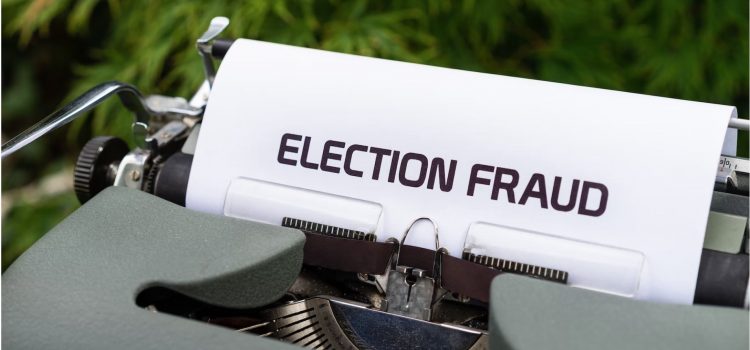
This is a free excerpt from one of Shortform’s Articles. We give you all the important information you need to know about current events and more.
Don't miss out on the whole story. Sign up for a free trial here .
Is voter fraud real or a nonexistent threat? What does the evidence reveal?
Having to prove your identity in order to vote in a U.S. election seems like common sense. According to surveys, over 80% of people believe it prevents voter fraud. Yet the major parties remain deadlocked over instituting voter ID.
Keep reading to learn if voter fraud is a real problem or just an overhyped issue.
Is Voter Fraud Really a Problem?
We’ll examine the key areas where advocates of voter ID and opponents differ most strongly. Opponents of voter ID laws argue that it’s a “solution” to a nonexistent problem. So, how do opponents of voter ID answer the question: “Is voter fraud real?”
Perspective #1: Opponents of Voter ID
The Brennan Center for Justice at NYU Law contends that voter identity fraud is extremely rare, and most alleged incidences stem from administrative errors; they found identity fraud incidence rates to be between 0.0003% and 0.0025%. The center cites numerous other studies with similar findings, including multiple reviews of the 2016 election—for example, an analysis by The Washington Post found only four documented cases of voter identity fraud. Court rulings and government findings generally concur that such fraud is rare.
Perspective #2: Supporters of Voter ID
Supporters of voter ID, such as the Heritage Foundation, don’t typically cite any modern, documented evidence in the US of widespread fraud by voter impersonation, double voting, or non-citizen voting. Even Supreme Court Justice John Paul Stevens, in writing for the majority that upheld Indiana’s strict voter ID law in 2008, had to reach back to the 1800s for an example of significant voter identity fraud.
Instead of citing evidence, advocates stress the possibility that identity fraud could happen and argue that we should preempt it. Justice Stevens went on to write that while there’s “no evidence of extensive fraud in US elections,” it still occurs and could tilt a close election in the future. He cited the Bush-Gore margin of only 537 votes in Florida in 2000 as a reason to worry about potential fraud being enough to swing an election.
Supporters also say that the limited evidence for voter identity fraud may be due less to its rarity than to the fact that it’s difficult to track—for instance, states don’t compare voting rolls to check for double registrations. Also, most states have or devote few resources to looking for this kind of fraud. In other words, there’s probably more fraud than we think.
Further, advocates point to other countries that enacted voter ID and other measures in response to fraud. For example, voter impersonation was widespread in Northern Ireland until the government began requiring identification in 1985. However, this kind of fraud has been rare in Europe outside of Northern Ireland; fraud in Europe has more often involved absentee voting.

Want to fast-track your learning? With Shortform, you’ll gain insights you won't find anywhere else .
Here's what you’ll get when you sign up for Shortform :
- Complicated ideas explained in simple and concise ways
- Smart analysis that connects what you’re reading to other key concepts
- Writing with zero fluff because we know how important your time is






